10 Useful Tips to Consider Before Buying Health Insurance
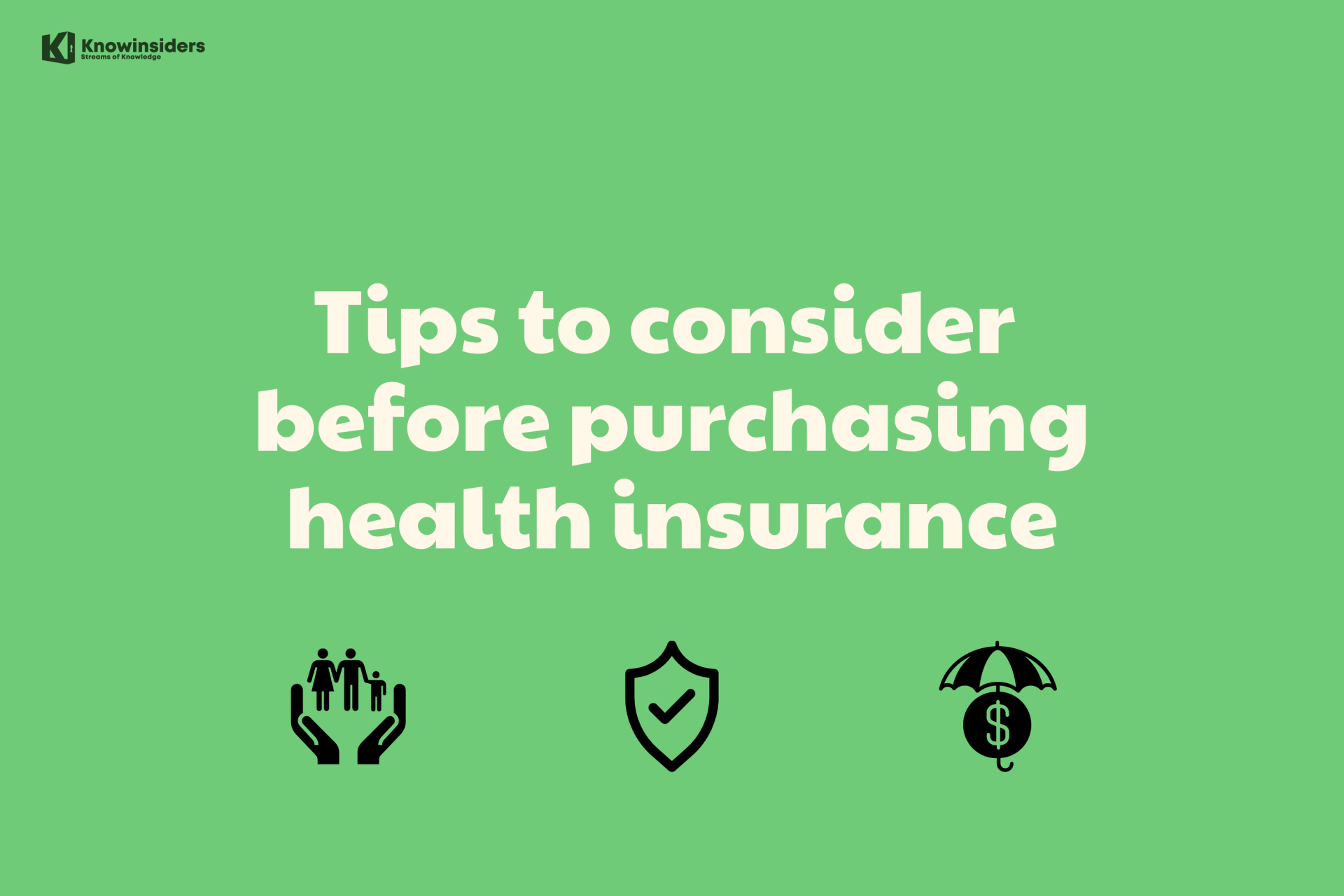 Best Tips To Purchase Health Insurance Best Tips To Purchase Health Insurance |
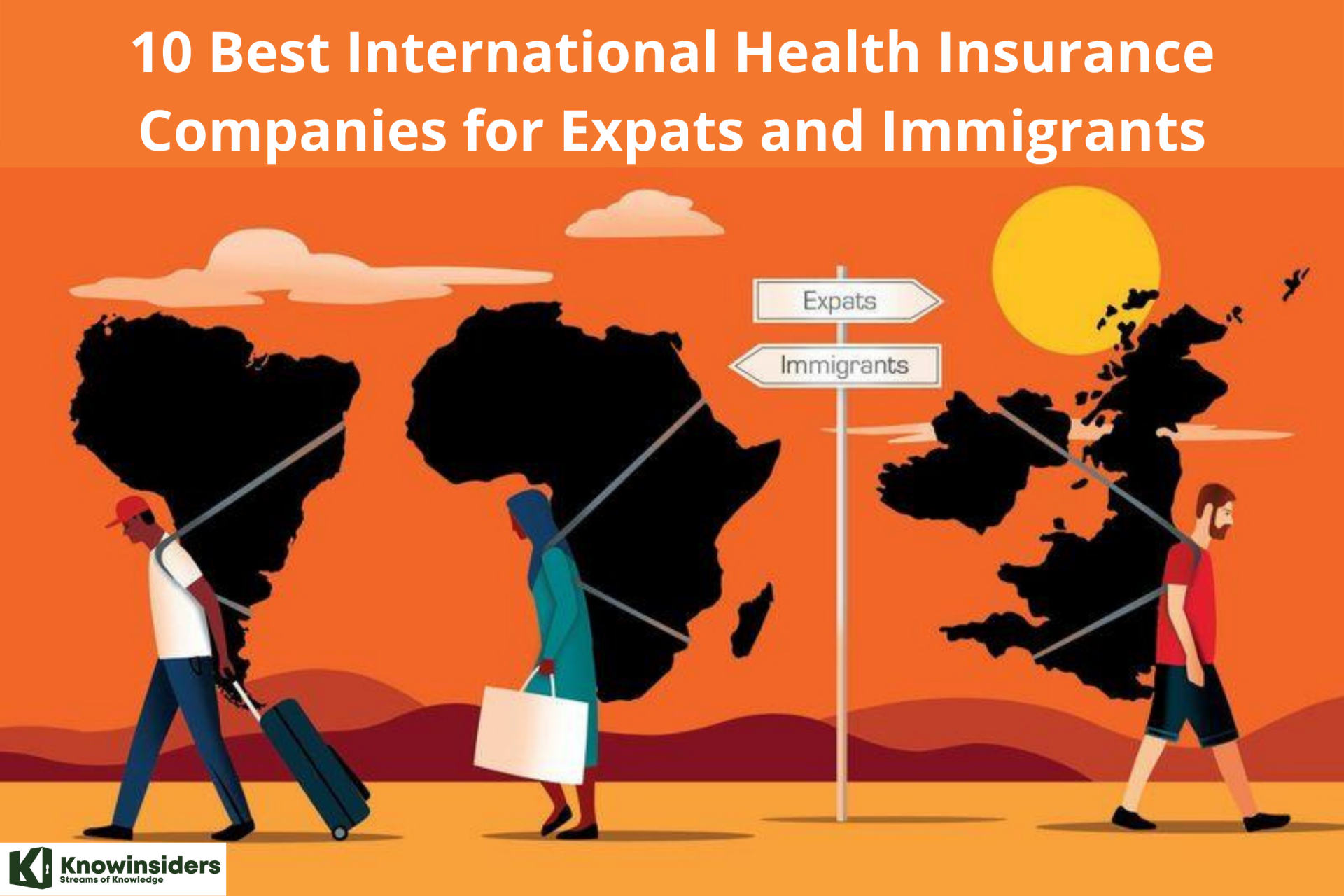 Top 10 Best Global Health Insurance Companies for Expats Top 10 Best Global Health Insurance Companies for Expats |
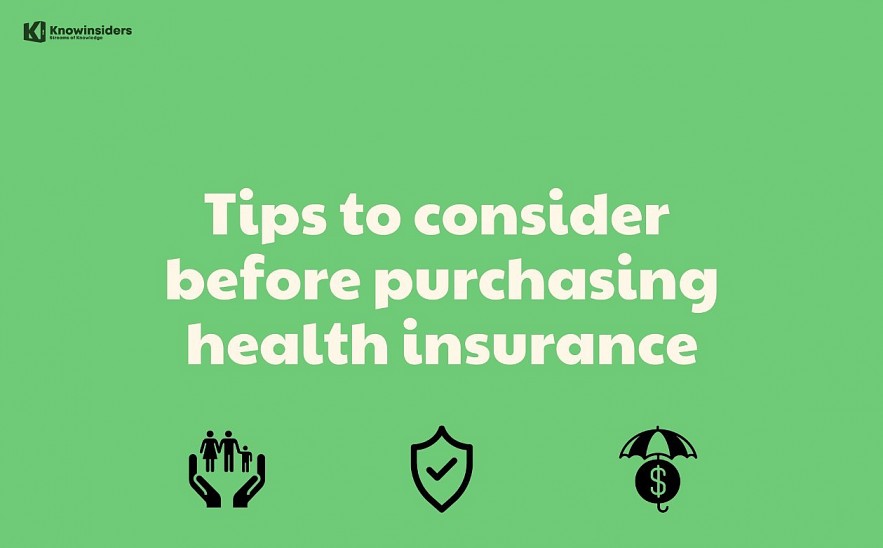 |
| Tips to consider before buying health insurance |
Life may be like a box of chocolates. But buying life insurance is more like ordering coffee at Starbucks, says Faisa Stafford, CEO and president of Life Happens, an industry-funded nonprofit that educates consumers about insurance. There are so many options that it’s hard to know what to get. “It can be extremely confusing,” she says.
Health insurance: How it protects you from health and financial risks
No one plans to get sick or hurt, but most people need medical care at some point. Health insurance covers these costs and offers many other important benefits.
• Health insurance covers essential health benefits critical to maintaining your health and treating illness and accidents
• Health insurance protects you from unexpected, high medical costs.
• You pay less for covered in-network health care, even before you meet your deductible.
• You get free preventive care, like vaccines, screenings, and some check-ups, even before you meet your deductible.
• If you have a Marketplace plan or other qualifying health coverage through the plan year 2018, you don’t have to pay the penalty that people without coverage must pay.
Protection from high medical costs
Health insurance provides important financial protection in case you have a serious accident or sickness.
People without health coverage are exposed to these costs. This can sometimes lead people without coverage into deep debt or even into bankruptcy.
It’s easy to underestimate how much medical care can cost:
• Fixing a broken leg can cost up to $7,500
• The average cost of a 3-day hospital stay is around $30,000
• Comprehensive cancer care can cost hundreds of thousands of dollars
Having health coverage can help protect you from high, unexpected costs like these.
If you’re considering buying life insurance but are confused, these 10 tips will help:
1.Assess your current financial situation
 |
| Photo: Run The Money |
Before you can decide on the kind and amount of life insurance you require, according to Stafford, you must have a complete picture of your financial situation.
Think about the plans you have in place to support family members who rely on you financially. This would include any life insurance coverage obtained through employment, an emergency fund, and retirement savings. You might discover that you're not as ready as you thought to deal with the unexpected.
The needs you should cover with life insurance, such as a mortgage that must be paid, children who must be supported, a small business that must be maintained, or a legacy you wish to leave, should be discussed with a financial advisor, according to Stafford. A financial planner may be available to you through your employer as one of your benefits. Alternately, you could use the National Association of Personal Financial Advisors to locate a fee-only planner.
2.Selecting the right insurance amount
One should carefully choose the amount when choosing a health insurance plan because it will cover medical costs for a full year. Consider your age; the less insurance you need, the younger you are. When determining whether a premium is affordable, one should also consider their income levels. The add-ons are a crucial component as well because they affect premium costs. Make sure you selected a sum insured that will not be insufficient in the event of an emergency and whose premium is not too high.
3.Only buy insurance to maintain your existing standard of living
You don’t need insurance for events that won’t severely strain your finances. Start with your basic needs (home, auto, business), then work your way to include other needs (cyber, professional liability). You can always add coverage later for something if you change your mind. You can minimize your risk and maximize your savings by buying insurance that suit your needs today.
4.Compare insurance policies
Term insurance and savings-cum-protection insurance are the two fundamental types of life insurance. Term insurance offers protection from unforeseen circumstances that could otherwise be financially stressful.
Term insurance is affordable because a substantial insurance cover can be obtained for a low premium.
If the insured lives past the end of the policy period, the insurance company makes no payment. The maturity benefit from savings-cum-protection insurance, on the other hand, is equal to the sum insured plus bonus additions. Term insurance serves only to safeguard your dependents' finances in the event of an unforeseen circumstance; it does not provide any personal benefits for you. Your decision should be based on your current and long-term needs.
5.Understand what affects your life insurance rate
Health and age are the two main variables life insurance companies take into account when calculating the cost of your coverage. According to Winslow, life insurance tends to be less expensive the younger you are when you purchase it. That's because you're generally healthier and less risky to insure when you're younger.
The type of policy you purchase and the size of the death benefit both influence the rate you pay. The term length you select when purchasing term life insurance will also impact your premium.
Most term life policies give you the choice to convert to permanent life insurance if you currently can only afford a term life policy but want permanent insurance. With term life insurance, you can lock in a low rate now and switch to a permanent policy if your income rises.
6.Review your insurance needs on a yearly basis
Your insurance plan will change as your needs do. Perhaps since getting car insurance for your primary vehicle, you've bought a new vehicle, or perhaps you've started a home-based small business. It's important to think about whether your policy needs to change after a change to account for new risk exposures. To stay on top of your insurance needs, stay in touch with your insurance provider or broker.
7.Prepare to answer lots of questions when applying
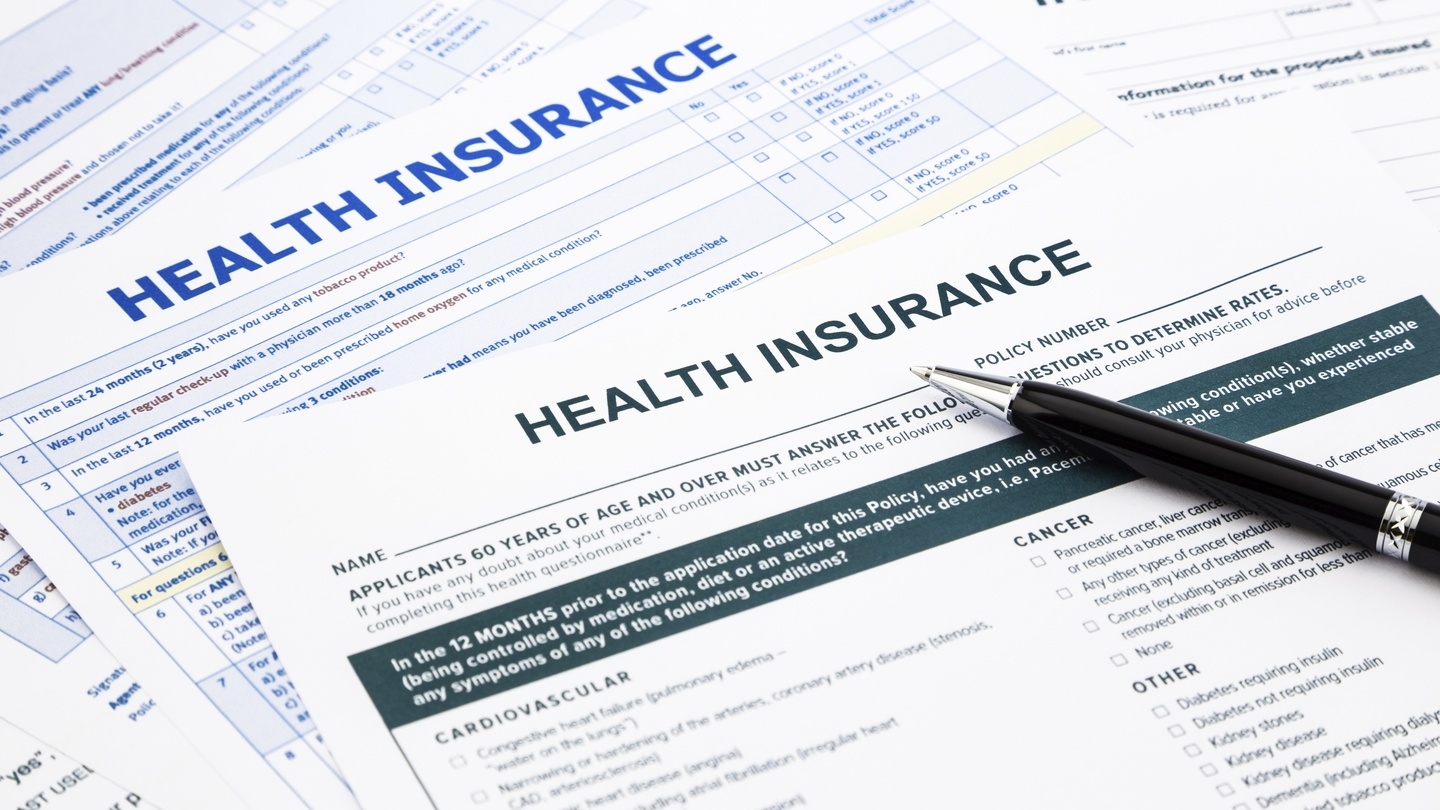 |
| Photo: The Irish Times |
The quote you receive from an insurer typically only serves as an estimation of your premium. You'll need to fill out a lengthy application in order to obtain a policy. Your age, weight, personal medical history, mental health, family medical history, and use of tobacco will all be inquired about.
The insurer will also inquire about your driving history and whether you engage in any risky hobbies or work that increases your insurance risk. Your actual insurance rate is calculated using the data provided.
8.Don’t just focus on premium
The cost of your life insurance is crucial because you want to make sure that the premium is within your means. A policy won't help you at all if you can't afford the premium payments, after all. Price should not, however, be your only consideration.
The internal costs of a cash value life insurance policy can be just as significant as the premium you pay. If you're looking at indexed universal life insurance, pay close attention to the parts of the policy illustration that are guaranteed vs. non-guaranteed. Concerns about dishonest sales techniques for indexed universal life insurance are raised by consumer advocates.
Finding the best life insurance companies is important. In your search, look for a business with solid financial ratings in the A range from independent rating agencies like A.M. Best, Moody's, and Standard & Poor's. Ratings are available on the websites of insurance companies. You can also request company ratings from your life insurance agent.
9.Consider bundling several policies with one insurance carrier
There may be value in bundling several policies with one insurance carrier. If you’re looking to insure multiple vehicles or obtain multiple types of business coverage (like liability, property, and cyber risk), then you may want to find a single insurance provider who carries multiple products — they may be able to offer you multi-policy discounts or loyalty programs.
10. Check the claim settlement history of the insurance company
You purchase an insurance policy so that your insurance provider will provide the specified benefit or benefits in the event of a future need. Check the insurance company's claims payment ratio in the same way that it verifies your ability to be insured. Researching an insurance company's claims history online is not difficult.
On its website, the IRDAI also offers information about claims. It's possible that the insurance company denied some claims, but you should look into the reasons for the decisions. If a claim is fraudulent or not payable for some other reason, insurance companies cannot and will not pay. It is not sufficient to understand how much insurance coverage to purchase and from whom. To ensure that you have a sufficient level of insurance, it is imperative that you do it when you are young.
| You will pay the reduced rate because insurance companies negotiate discounts with healthcare providers on your behalf. Average cost of care is double for those without insurance. This means that even before you reach your deductible, you will pay less for the same services when you use a network provider than you would if you didn't have coverage. • These savings can occasionally be modest. A flu shot may cost you $25 if you have insurance and go through a network provider rather than the $40 it costs someone without coverage. • Other times, substantial savings may be possible. If you go through a network provider, your office visit might cost $85 as opposed to $150 for someone without insurance. Even greater savings may be possible for more expensive services. Therefore, by simply enrolling in an insurance plan, you can save a lot of money on your covered medical services even if your deductible is not met during the course of the year. |
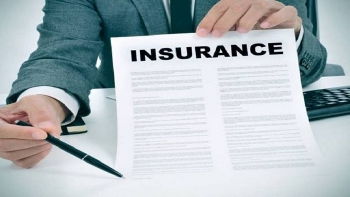 Most Weirdest Insurance Policies Around The World Most Weirdest Insurance Policies Around The World What are the weirdest insurance policies in the world? Insurance is available even after the escape of aliens, vampire and bride run away in marriage, ... |
 What Is Mortgage Insurance and How Does It Work? What Is Mortgage Insurance and How Does It Work? What is mortgage insurance, how it works, and what are its benefits? Scroll down to understand more details about the advantages of mortgage insurance. |
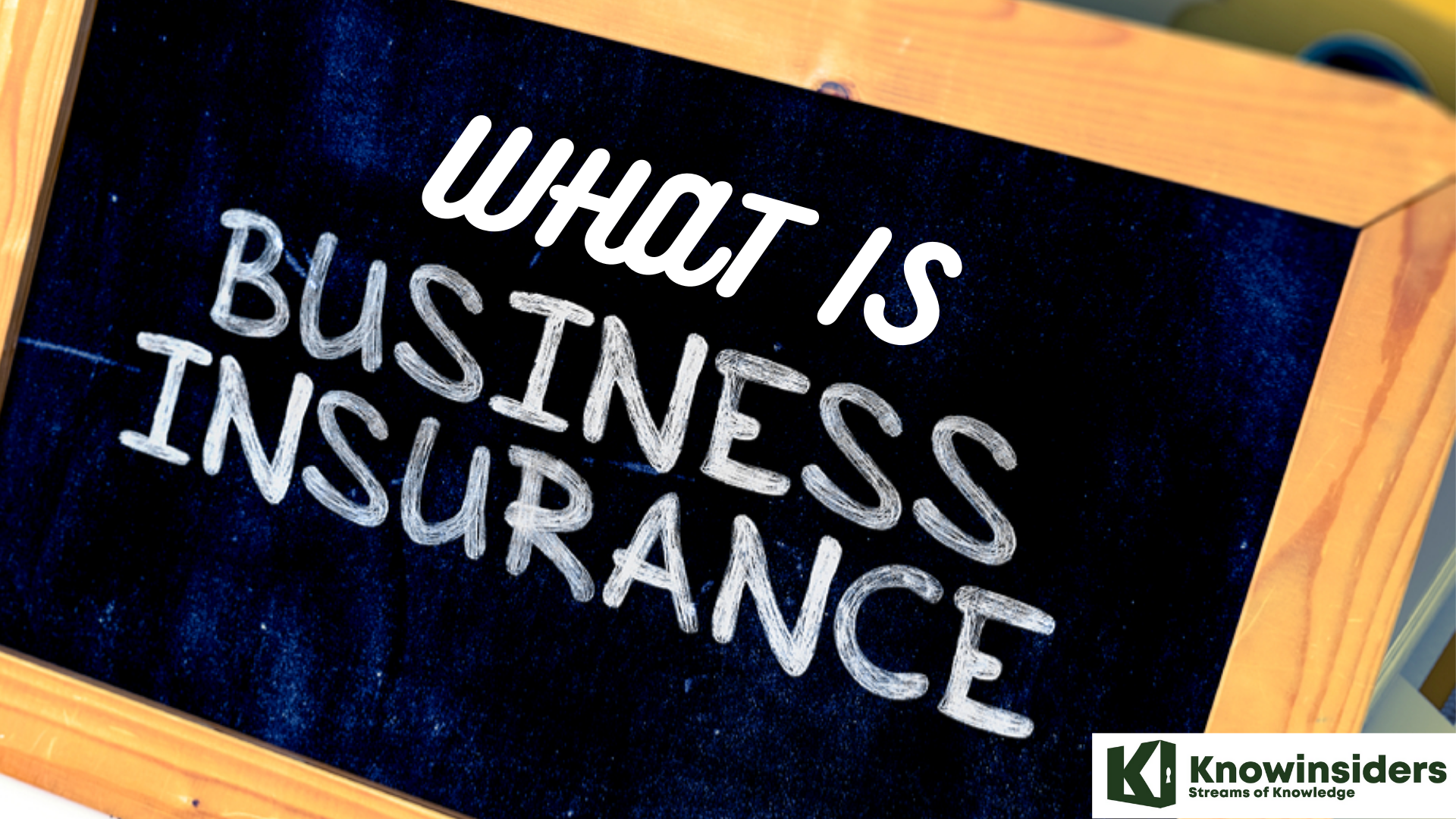 What is Business Insurance: Definition, Types and Cost What is Business Insurance: Definition, Types and Cost Business Insurance is one of the most important parts if you want to start a business, which will help protect your businesses against losses. |


























